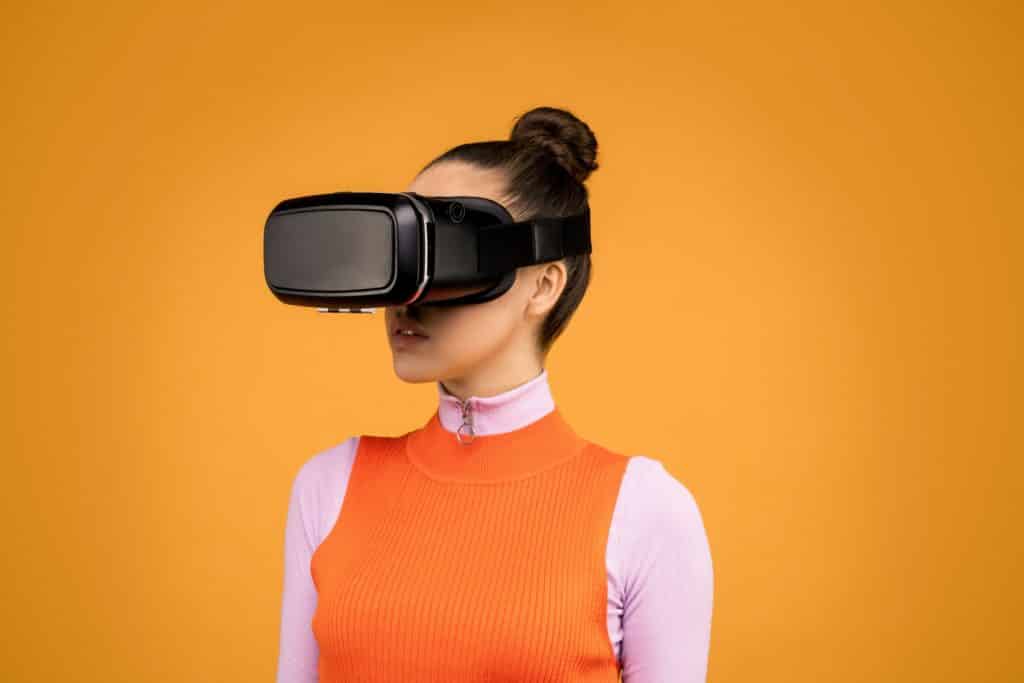
It’s no secret – the internet’s new frontier is expected to grow exponentially in the coming years. And within this brave new world, there’s one concept in particular that is grabbing the attention of everyone, from politicians to social media moguls, leading global brands to offbeat artists and creators – that concept is, of course, the metaverse!
The metaverse will be a digital environment, powered by virtual reality (VR) and augmented reality (AR) technology, with a focus on providing immersive experiences for users. The adoption of these virtual experiences is increasing rapidly across the tech industry. A recent Forbes article noted that video gaming and esports are seeing a rise in the integration of VR experiences, with a predicted $2.4 billion market value in 2024. And other sectors are following suit – take Dolce & Gabanna’s presence at virtual fashion week. With the rise in these virtual experiences, it’s vital for us to consider what this means, and what the future metaverse looks like, for both brand and consumer.
Here are five things you need to know about the future of the metaverse and what we can expect to see next:
1. The metaverse isn’t a new concept
In fact, the term has been around for about 30 years. In 1992, science fiction author Neal Stephenson coined the word “metaverse” in his novel, Snow Crash. Stephenson’s vision of the future of the internet depicts the metaverse as a virtual space where people can interact with each other as avatars. After witnessing Facebook’s rebrand to Meta in late 2021, it seems like life is imitating art and the term “metaverse” is now commonplace in our vocabulary.
2. It’s the driving force behind this new era of virtual communication and advancements in augmented reality (AR) and virtual reality (VR) technology
Devices such as VR headsets are already becoming commonplace, helping users to immerse themselves virtually, via work meetings, live events, and gaming.

And it looks like this technology is here to stay with tech giant Meta committed to investing $10B in its VR and AR Unit, Facebook Reality Labs. This hints at the exciting innovations we’re yet to see in virtual communications as we edge closer into the metaverse.
3. The gaming industry is already a step ahead
Online multiplayer games and virtual worlds such as World of Warcraft, Minecraft and Epic Games’ Fortnite offer a glimpse into how virtual experiences in the metaverse will begin to take shape – and the list is only growing.
Brands are jumping onto the radar of previously untapped audiences via placements in the immersive world of online video games. Recently, we’ve seen fashion giant Timberland making a virtual statement via its collaboration with Fortnite. Merging fashion design and gaming, the brands have come together to create and reimagine product design and placement with in-game experiences, while engaging consumers along the way.
4. Celebrities and brands are already jumping on the metaverse bandwagon
The ability to create your own virtual avatar is opening up previously uncharted opportunities for artists, celebrities and influencers to boost their fan engagement and create new revenue. For example, Justin Bieber’s live interactive show on the XR virtual entertainment platform, Wave, saw him performing as an avatar.
Similarly, brands are ramping up their metaverse strategy. Consumers are excited about brands entering the metaverse. According to McKinsey research, two-thirds of survey respondents indicated that they are excited to engage in digital experiences with their favourite brands. As the metaverse becomes further ingrained into popular culture, more and more people are becoming aware of its exciting possibilities.
5. The metaverse will impact the way we work
The global pandemic dramatically changed the way we work, with many firms forced to go entirely remote. The arrival of the metaverse takes the possibilities for work a step further with VR workrooms. This is already becoming a reality with Meta’s launch of Horizon Workrooms, ‘designed to improve your team’s ability to collaborate, communicate, and connect remotely, through the power of VR.’ The arrival of platforms like this demonstrates how the metaverse has the potential to revolutionise the way we work and interact with one another on a day-to-day basis.
Though still in its infancy, the metaverse raises many questions about the future of brand marketing. Discussions around the future of the metaverse have served as a powerful springboard for brands to innovate. Advancements in AR and VR technology will be the driving force behind these changes, and we will continue to see brands jump on these previously unexplored opportunities – providing us with a revolutionary way to communicate on a brand, work, and social level.
Want to learn more about where the future of tech is headed? Dive into our other blogs here.

©️2024 Grammatik Agency, Second Home, 125–127 Mare St, London E8 3SJ.
[email protected]
+44 (0)20 3950 7057 Privacy policy